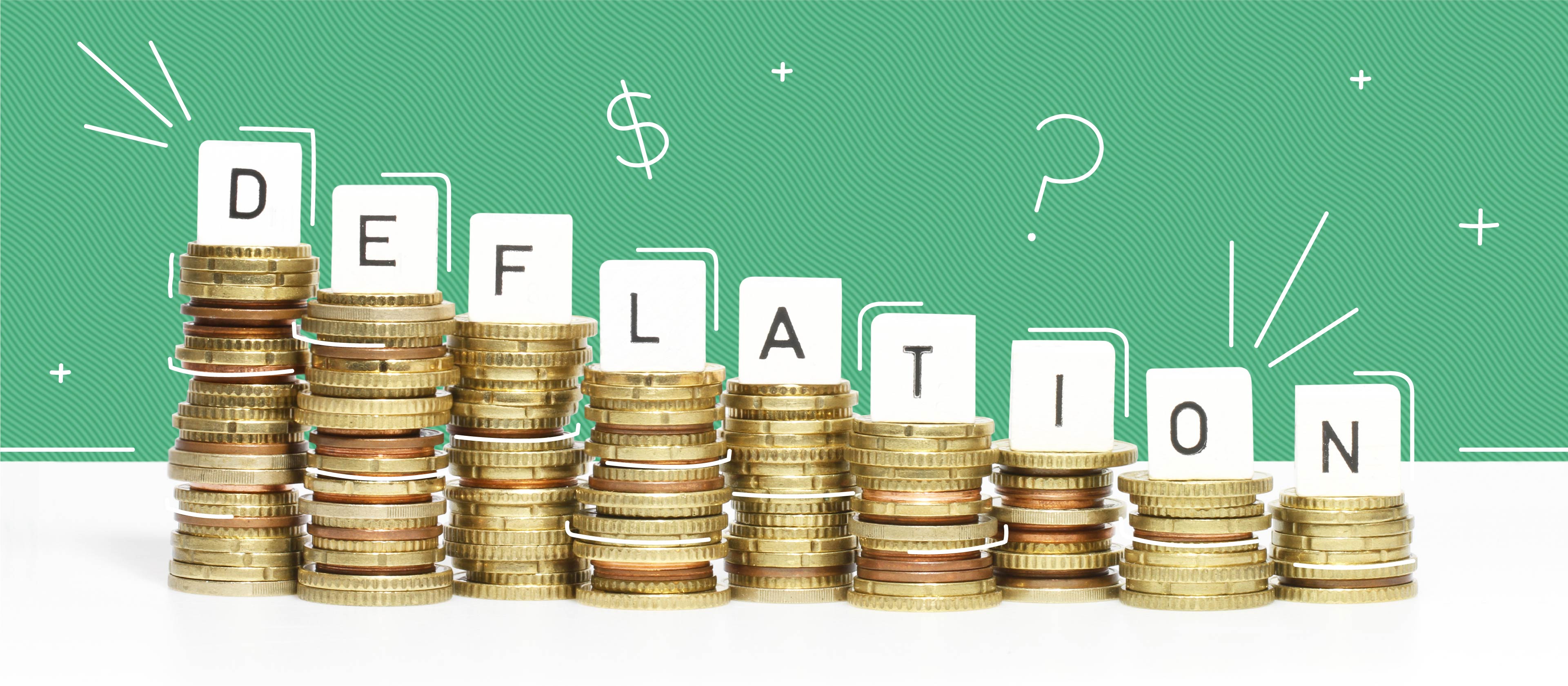Deflation is a significant economic phenomenon that can have profound implications for both businesses and consumers. In contrast to inflation, where prices rise, deflation involves a decline in prices, which can lead to decreased economic activity. This article will delve into the complexities of deflation, exploring its causes, effects on the economy, and potential solutions to mitigate its impact.
Recognizing the importance of deflation in today's global economy, it’s crucial for individuals, businesses, and policymakers to understand its underlying mechanisms. By examining deflation from multiple angles, we can better prepare for its potential consequences and devise effective strategies to combat its adverse effects.
In this comprehensive guide, we will cover various aspects of deflation, including its definition, historical examples, and the difference between deflation and disinflation. Our goal is to provide valuable insights that will enhance your understanding of deflation, allowing you to navigate its complexities more effectively.
- Winners From Americas Got Talent A Comprehensive Overview
- Cast Of The Color Purple 2023 A Deep Dive Into The Stellar Ensemble
Table of Contents
- 1. What is Deflation?
- 2. Causes of Deflation
- 3. Effects of Deflation on the Economy
- 4. Historical Examples of Deflation
- 5. Deflation vs. Disinflation
- 6. Solutions to Combat Deflation
- 7. Conclusion
- 8. References
1. What is Deflation?
Deflation is defined as a decrease in the general price level of goods and services. It is often associated with a reduction in the supply of money or credit, leading to a decline in consumer demand. When deflation occurs, the purchasing power of money increases, meaning consumers can buy more with less. While this might sound beneficial, deflation can lead to severe economic challenges.
2. Causes of Deflation
Understanding the causes of deflation is essential for identifying its potential impacts. Here are some of the primary causes:
- Decrease in Aggregate Demand: A significant drop in consumer and business spending can lead to deflation. When people spend less, businesses lower prices to attract customers.
- Increased Productivity: Technological advancements can lead to increased efficiency and lower production costs, resulting in lower prices.
- Monetary Policy: Tight monetary policies, such as higher interest rates, can reduce the money supply, leading to deflation.
- Global Competition: Increased competition from abroad can drive domestic prices down as companies strive to maintain market share.
3. Effects of Deflation on the Economy
Deflation can have several detrimental effects on the economy, including:
- Demi Moore Hair A Journey Through Style And Trends
- Clint Eastwood The Iconic Career And Life Of A Hollywood Legend
- Reduced Consumer Spending: As prices fall, consumers may delay purchases in anticipation of even lower prices, leading to decreased demand.
- Increased Unemployment: Businesses may cut costs in response to falling prices, often resulting in layoffs and higher unemployment rates.
- Debt Burden: The real value of debt increases during deflation, making it harder for borrowers to repay loans, which can lead to defaults.
- Economic Recession: Prolonged deflation can lead to a downward economic spiral, resulting in recessions or depressions.
4. Historical Examples of Deflation
Several historical instances of deflation serve as cautionary tales:
- The Great Depression (1930s): One of the most notable examples, where deflation led to widespread economic hardship, high unemployment, and a significant decline in GDP.
- Japan's Lost Decade (1990s): After an asset bubble burst, Japan experienced prolonged deflation, leading to stagnation and economic challenges.
5. Deflation vs. Disinflation
It’s important to differentiate between deflation and disinflation:
- Deflation: A decrease in the general price level of goods and services.
- Disinflation: A decrease in the rate of inflation, meaning prices are still rising but at a slower pace.
6. Solutions to Combat Deflation
Policymakers have several tools at their disposal to combat deflation:
- Monetary Policy: Central banks can lower interest rates and increase the money supply to stimulate economic activity.
- Fiscal Policy: Governments can increase spending or cut taxes to boost demand.
- Inflation Targeting: Setting explicit inflation targets can help anchor expectations and encourage spending.
7. Conclusion
In summary, deflation is a complex economic issue that can have severe consequences if not addressed promptly. By understanding its causes and effects, individuals and policymakers can take proactive measures to mitigate its impact. It is crucial to remain vigilant and informed about economic trends, as they can greatly affect our financial well-being.
We encourage you to share your thoughts on deflation in the comments below and explore other articles on our site for more insights into economic topics.
8. References
1. Mankiw, N. G. (2021). Principles of Economics. Cengage Learning.
2. Blanchard, O., & Johnson, D. R. (2019). Macroeconomics. Pearson.
3. Bernanke, B. S. (2004). Deflation: Making Sure "It" Doesn’t Happen Here. Federal Reserve Board.
- Who Is Poodle Moth On The Masked Singer Unveiling The Mystery Behind The Mask
- Laura Wasser The Preeminent Attorney In Family Law


